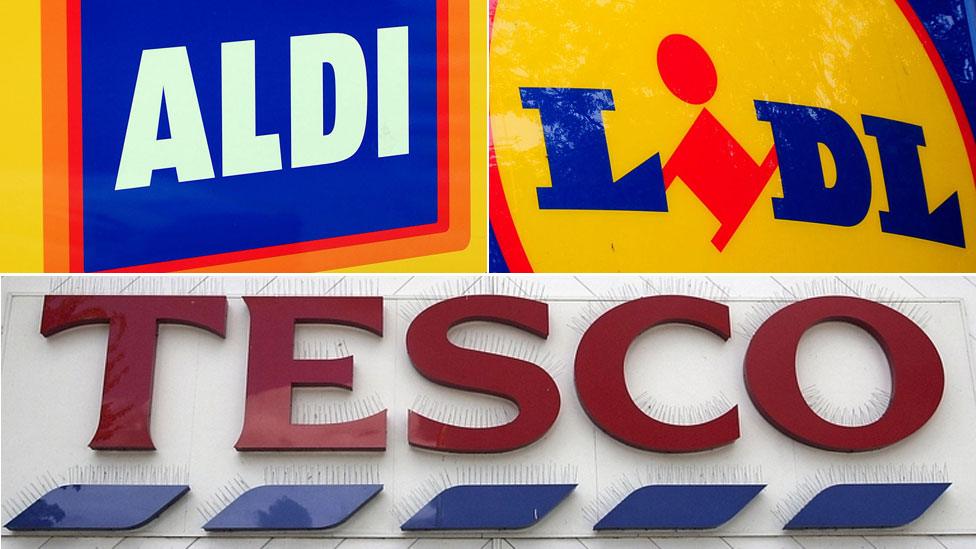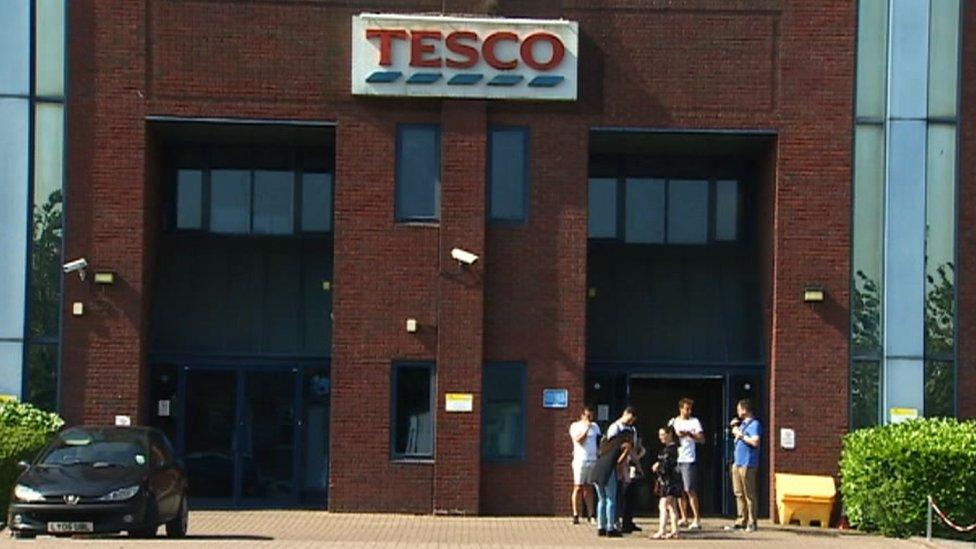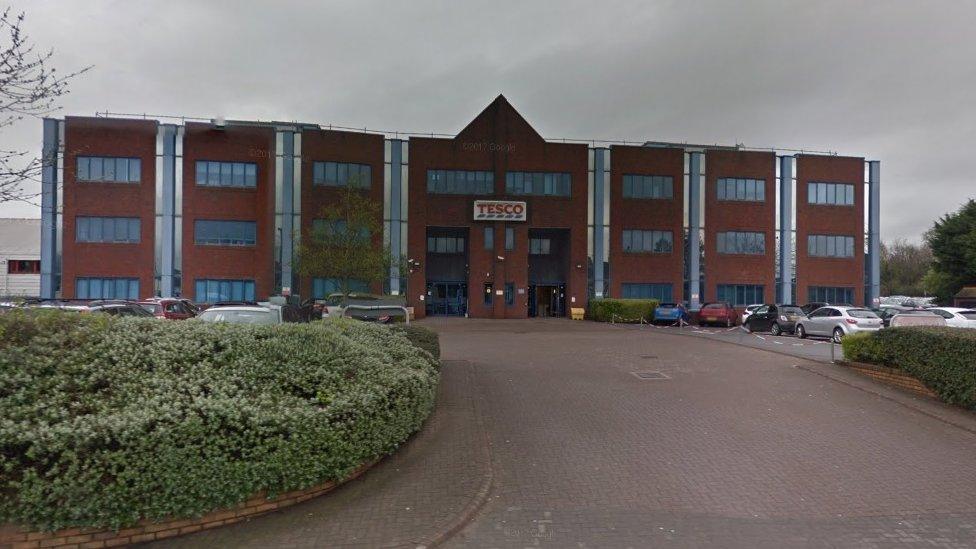Supermarket rivalry factor in Tesco call centre job cuts
- Published

The loss of 1,100 jobs is a huge blow for the workers at Tesco's Cardiff contact centre, creating uncertainty about the future.
Tesco and the other big supermarket chains have been facing fierce competition from the likes of Aldi and Lidl which has led to pressure to cut costs.
It nevertheless came as a bolt from the blue, surprising both those in the industry and politicians.
The Welsh Government was given 45 minutes notice of announcement, which suggests that Tesco was not looking for funding to reconsider its decision.
The store group's UK chief executive spoke of "unprecedented challenges" and meeting changing needs of customers.
The jobs due to go at Tesco in Llanishen are services dealing with customers on the telephone and online through social media and emails.
Increasingly, Tesco like other call centres, is dealing with emails rather than telephone calls. This takes less time, so involves fewer people.
But overall the contact centre industry in Wales is still growing.
About 2,000 jobs have been created in the last 18 months most recently at Carpeo in Newport.
Despite the worry this will undoubtedly cause the Tesco workers, the skills that they have will put them in a strong position to get other jobs in the sector.

Q&A: The contact centre industry in Wales
Based on an interview with Sandra Busby, managing director of the Welsh Call Centre Forum.
How strong is the sector in Wales at the moment?
It's very strong. We just represent people in the contact centre side, not the total business - so Admiral have 5,500 people in Wales and 4,700 are in the contact centre.
"We call them contact centres not call centres now because there are multi-channels - people will host web chats, answer phones, emails and, increasingly, look after social media. It's about customer contact.
The sector has changed considerably since 1999. That's due to technology - an example of that is the DVLA which pushed people into self-serving online. The same with booking cinema tickets or paying the bank's credit card bills. You might have expected to see a reduction but we've seen a growth in jobs.
There are already new jobs in the pipeline apparently both in terms of new companies coming to Wales and the many that are already here that are planning to expand.
The concern there's been when manufacturing work has closed down is that those jobs go and won't be replaced by anything else.
There's some hope that won't be the case here as opportunities arise with these call centre jobs particularly as schemes like React are put in place and organisations like JobCentre Plus get involved.
There is a medium and long-term challenge for call centres though as they will certainly be affected by automation which will have an impact on jobs.

South Wales is pretty established now as a call centre location. What are the particular attributes its workers offer? What do employers like?
Wales is well placed on competitive salaries, building costs and support from Welsh Government. Staff turnover tends to be lower, a more loyal workforce. When you look at the right behaviours to go with the skills - people turn up for work, they want a career and to progress.
There are some who still say call centre jobs are not 'real' jobs.
In 1999, there were team leaders who are now senior managers. People move up the ranks. Working in customer contact can involve sales, marketing, customer service, a whole variety of jobs and working for some great brands - Barclays, Virgin, HSBC, PPI and cold calling damaged the industry.
- Published22 June 2017

- Published21 June 2017
